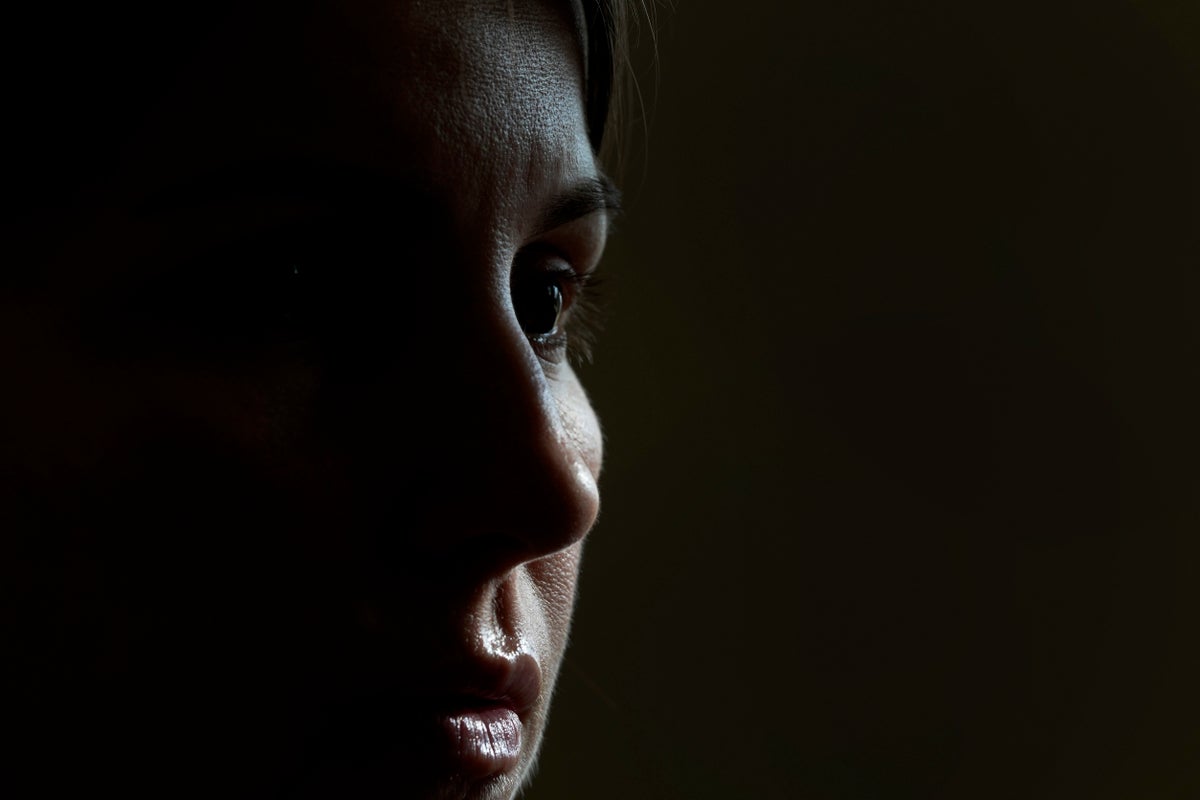
The small English village that Viktoria Kovalenko now calls home is peaceful, sleepy — a far cry from the fighting in Ukraine that killed her family in one horrific, unexpected blow. Her memories are a different matter.
“It’s a condition that I can’t control. Sometimes I think everything is fine. Sometimes I cry for no reason,” she told The Associated Press from her house in Kent, southeast England.
“What happened to my husband and my daughter will stay with me all my life,” she added. “It is impossible to cure.”
Kovalenko, 34, saw her husband Petro and 12-year-old daughter Veronika die in northern Ukraine last March when a shell hit their car. Kovalenko survived, along with her then 1-year-old baby, Varvara, but Russian soldiers held them captive in a school basement for three weeks.
Almost a year on, Kovalenko has a temporary new home through the kindness of volunteers who helped her cross borders and apply for a U.K. visa.
Like tens of thousands of other Ukrainians who have fled to Britain, she’s slowly getting used to her new life in the U.K. Her English is improving day by day. She keeps busy taking care of Varvara, now 2, who toddles everywhere with no fear and loves British chocolate. She shares her refuge with her brother, his wife and their two young girls, who escaped unharmed.
But Kovalenko still wells up when she speaks about Petro and Veronika or looks at their framed photos next to her bed. And every day she longs to return to Chernihiv, the city she fled when war broke out last February.
After the shell landed on March 5, 2022, killing Petro and Veronika, Viktoria Kovalenko and Varvara hid in an abandoned building, but next day were found by Russian soldiers who took them to a gym in a school basement. There the mother and child were held for 24 days, along with about 300 people including 2-month-old babies, as well as elderly villagers who later died in captivity.
“It was very crowded, it was always dark and dirty. There was no fresh air at all. People were sick and coughing, some slept on the floor, or on chairs, or even standing against the wall,” Kovalenko recalled. “It can be said we were lucky because the soldiers who held us were not soldiers who were in (Kyiv suburbs) Bucha, Irpin or somewhere else, who just killed everyone in a row.”
When the Russians retreated from the area in early April, Kovalenko got out and later found her way to the western city of Lviv, then on to Poland, where she joined her brother and his family.
It was in Poland that a volunteer reached out and offered to help find her refuge in the U.K. The volunteer was working with Derek Edwards, a Briton who set up an organization called Homes for Ukraine soon after the war started, to help transport dozens of refugees to safe housing in England. Edwards had read the AP article on Kovalenko’s story and decided to help.
Kovalenko said she knew next to nothing about the U.K., but decided to go anyway because she thought being on the move would help her process her grief.
“I just wanted something new, to constantly change the circumstances around me,” she said. “I thought I could escape evil thoughts. But it didn’t help much.”
In December, six months after Edwards first submitted her visa request, Kovalenko finally arrived in Kent. Edwards had picked up Kovalenko and her relatives from Poland, and found her a former vicar's house with the help of church officials. She took in the quiet country lanes, the village green and old brick houses, the everyday luxuries that British people take for granted.
But all she could think about was returning to her apartment block in Chernihiv. By year end, the war could be over, she said hopefully. Then, she said, she could restart therapy, find a job and rebuild her life.
“Ukraine alone will not be able to win this,” Kovalenko said. “If the whole world ... gives us more weapons now, then perhaps the war will end faster.”
“I hope that by the time I can go to work — when Varvara is older — I will have returned to Ukraine," she added. “It’s not because I don’t like it here, but it’s not home.”







